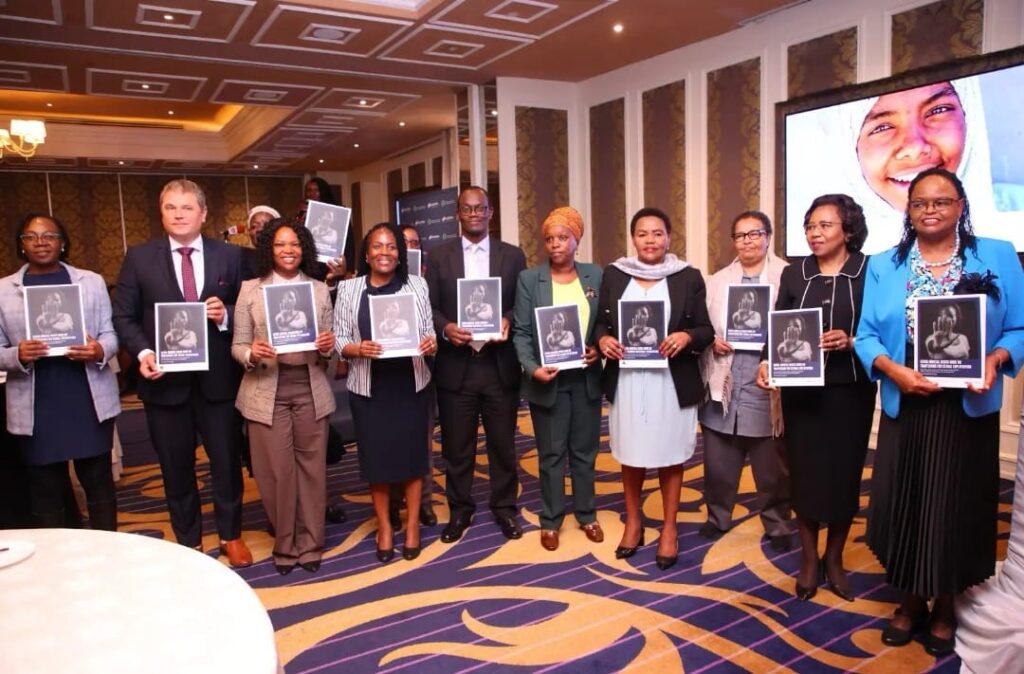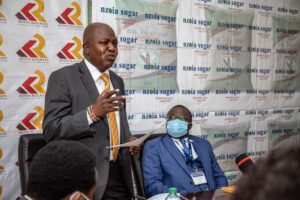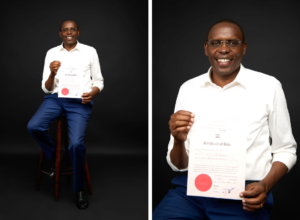The judicial system of Kenya, in partnership with the International Association of Women Judges and Equality Now, a non-profit organization, launched the “Kenya Judicial Bench Book on Trafficking in Persons for Sexual Exploitation” on Tuesday in Nairobi. This initiative aims to address gender injustices globally through the law.
In recognition of World Day Against Trafficking in Persons which is celebrated on July 30th every year, Chief Justice Martha Koome remarked, “This Bench Book on trafficking in persons for sexual exploitation seeks to facilitate a greater understanding of this form of trafficking, bringing attention to its elements, including institutional barriers, to support access to justice for victims and survivors.”
The Book is the first of its kind in Kenya focusing specifically on sex exploitation and human trafficking in the country. It complements existing judicial resources, such as the Bench Book on Labour Trafficking (2022) and the Bench Book on Criminal Procedure (2018).
Effective Adjudication of Sex Trafficking
The book aims to educate judicial officers, including judges, magistrates, prosecutors, advocates, and probation officers, on the dynamics of sex trafficking. It guides them in identifying potential victims, responding to their needs, and adopting strategies to address trauma. Additionally, it highlights the legal challenges in trafficking cases and calls for a human rights and trauma-informed approach.
Featuring insights from 87 cases and judgments on sex trafficking from various countries, including Kenya, Uganda, South Africa, and many others, the bench book underscores Kenya’s commitment to the UN Protocol to Prevent, Suppress, and Punish Trafficking in Persons (the Palermo Protocol). The Counter-Trafficking in Persons Act (2010) and other legislation provide a framework to combat trafficking in Kenya.
Progress in Policy Environment
The bench book complements Kenya’s policy efforts to combat trafficking, such as increasing investigations, prosecutions, and establishing specialized anti-trafficking police units. In February 2024, the Office of the Director of Public Prosecutions set up a specialized unit dedicated to countering trafficking in persons, enhancing efforts previously handled by the Gender-Based Violence Unit. The Counter-Trafficking in Persons Act of 2010 prescribes severe penalties for trafficking offenses, including long imprisonment terms and hefty fines.
Systemic Challenges in Sex Trafficking
Despite Kenya’s robust legislative framework, prosecution of human trafficking, particularly for sexual exploitation, remains low. According to Marion Ogeto, Equality Now’s program officer, there are significant gaps in investigating and prosecuting trafficking cases. In 2023, the government reported prosecuting 19 trafficking cases, including three for sex trafficking. In 2022, it prosecuted at least 48 cases, with 11 involving sex trafficking. Ogeto emphasized the need for strategic counter-trafficking law enforcement and a centralized data collection system to address underreporting.
The Gendered Nature of Sex Trafficking
The bench book highlights that women and children are particularly vulnerable to trafficking for sexual exploitation. A 2022 report from the National Crime Research Center indicated that 44% of trafficking cases involved sexual exploitation, affecting women (41%), children (33%), and men (21%). The theme of this year’s World Day Against Trafficking in Persons, “Leave No Child Behind in the Fight Against Human Trafficking,” focuses on the vulnerability of women and children, exacerbated by structural gender-based discrimination and inequality.
With the rise of digital technology, sex trafficking, including child sexual exploitation online, is a significant concern in Kenya. The Anti-Human Trafficking and Child Protection Unit of the Directorate of Criminal Investigations handled thousands of online child sexual exploitation cases in recent years.






More Stories
Public Interest Suit Raises Integrity Questions at Kenya Railways
Rhythm & Brunch Ignites Valentine’s Romance with UK R&B Sensation Sol and The Gang
Samsung Invites Fans to Join the #GalaxyUnpacked Watch Party and Win Big